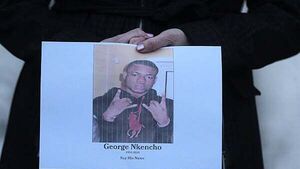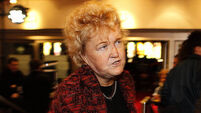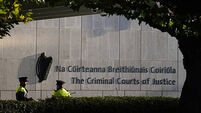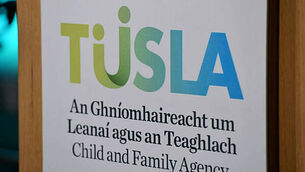Inquest into fatal shooting of George Nkencho by gardaí fixed for January 2026

Seán McCárthaigh
A full inquest into the fatal shooting of George Nkencho by gardaí outside his home in west Dublin five years ago is set to begin in January, although the scope of the inquiry into the circumstances of his death has still to be determined.
The chief coroner for Dublin, Myra Cullinane, has fixed January 13th, 2026, as the start date for the inquest, which is expected to last around two weeks.
Mr Nkencho (27) suffered fatal gunshot wounds during an incident involving members of the Garda Armed Support Unit outside his family home at Manorfields Drive, Clonee, Co Dublin on December 30th, 2020.
His family previously called on Dr Cullinane at the formal opening of the inquest in June 2020 to conduct a wide and broad examination of policing issues to consider if his death was linked to racial profiling and discrimination by gardaí.
At a brief hearing of Dublin District Coroner’s Court on Friday, the coroner said she had recently received a submission from An Garda Síochána in relation to the scope of the inquest.
However, Dr Cullinane told counsel for Mr Nkencho’s family, Seoirse Fennessy BL, that she would allow them until October 17th to file their own submission on the issue.
She also said she would hold another brief hearing on October 23rd to give all parties – which include Fiosrú (previously known as the Garda Síochána Ombudsman Commission) – to make submissions in relation to the scope of her inquiry.
The inquest heard that 240 statements have been provided to Mr Nkencho’s legal representatives with Dr Cullinane observing that disclosure was now “almost complete.”
The coroner said the deceased’s family had received the bulk of the disclosure although there were still nine documents “outstanding” which she confirmed would be made available.
Dr Cullinane said she was also proposing to provide the family with 13 documents relating to certain directives and policies as well as some CCTV footage from a Eurospar outlet and post office in Hartstown.
The coroner said she would not finalise a list of witnesses that she would ask to give evidence at the inquest until she had determined the issue of the scope of the inquiry.
Dr Cullinane previously indicated at a hearing in July that she expected around 50-60 witnesses would be called to give evidence.
She also ruled in May that two members of the Garda Armed Support Unit involved in the fatal shooting of Mr Nkencho would be given anonymity at the inquest in the interest of their own safety and “national security.”
Earlier this year, it was confirmed that Mr Nkencho’s family had unsuccessfully appealed the decision of the DPP that no garda should face prosecution over his death.
The fatal shooting of Mr Nkencho outside his home in west Dublin occurred after a stand-off developed between gardaí and the deceased who was armed with a kitchen knife.
The tense situation arose shortly after Mr Nkencho had been involved in an alleged assault of a shop assistant at a nearby Eurospar store.
The young man, whose family come originally from Nigeria, was pronounced dead a short time later at Connolly Hospital Blanchardstown.
Postmortem results revealed he died as a result of multiple gunshot wounds to the torso.
His family claim he was suffering from mental health issues for several months before his death and that the level of force used against him by gardaí was disproportionate.





